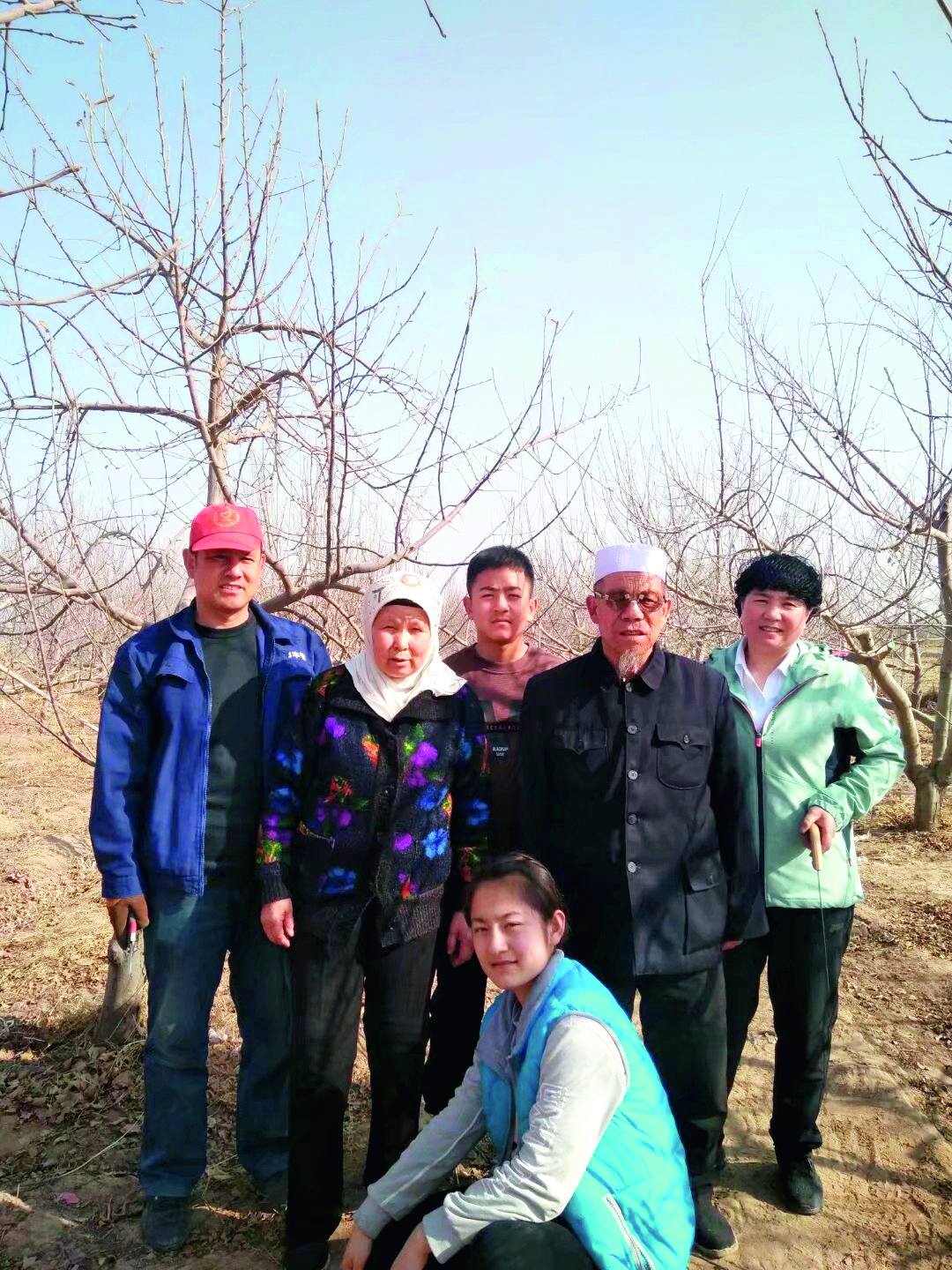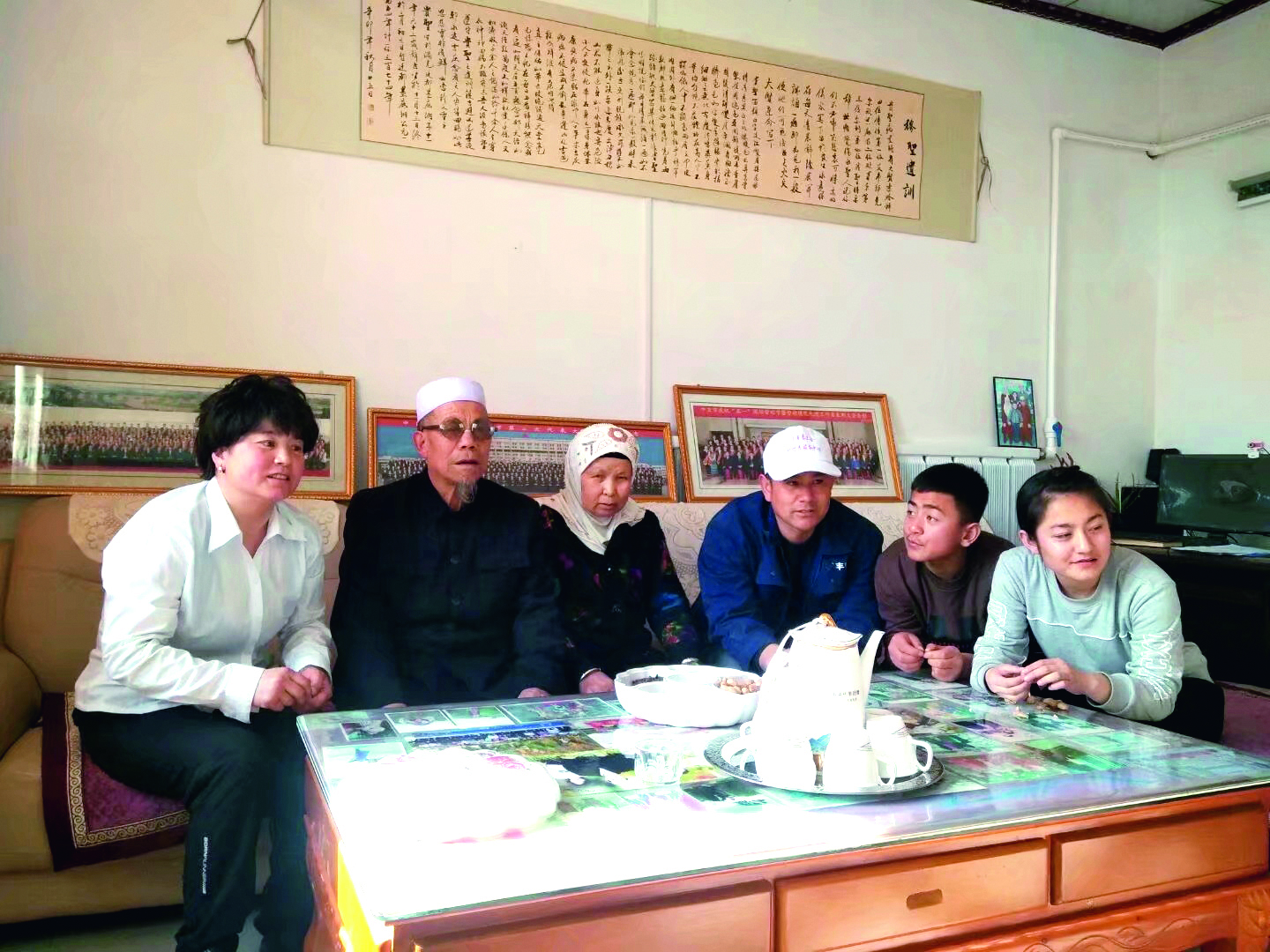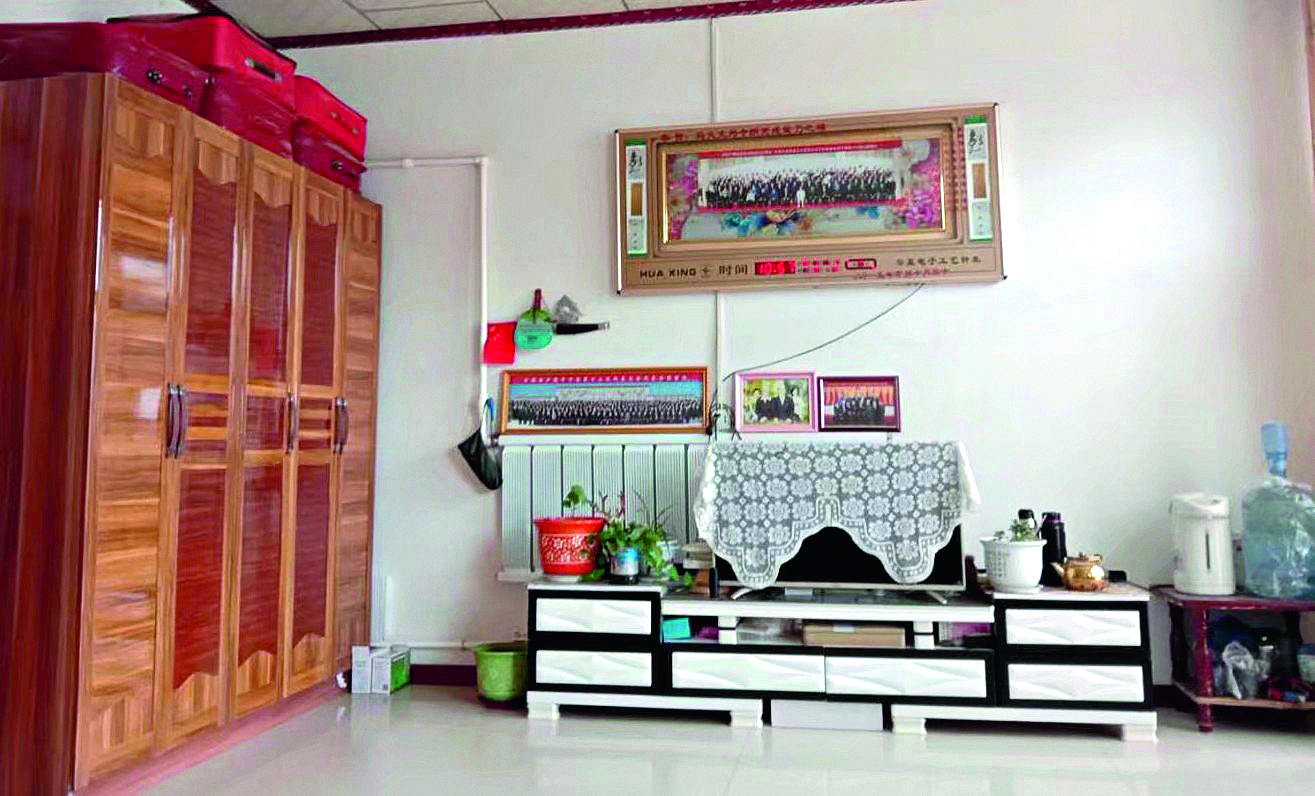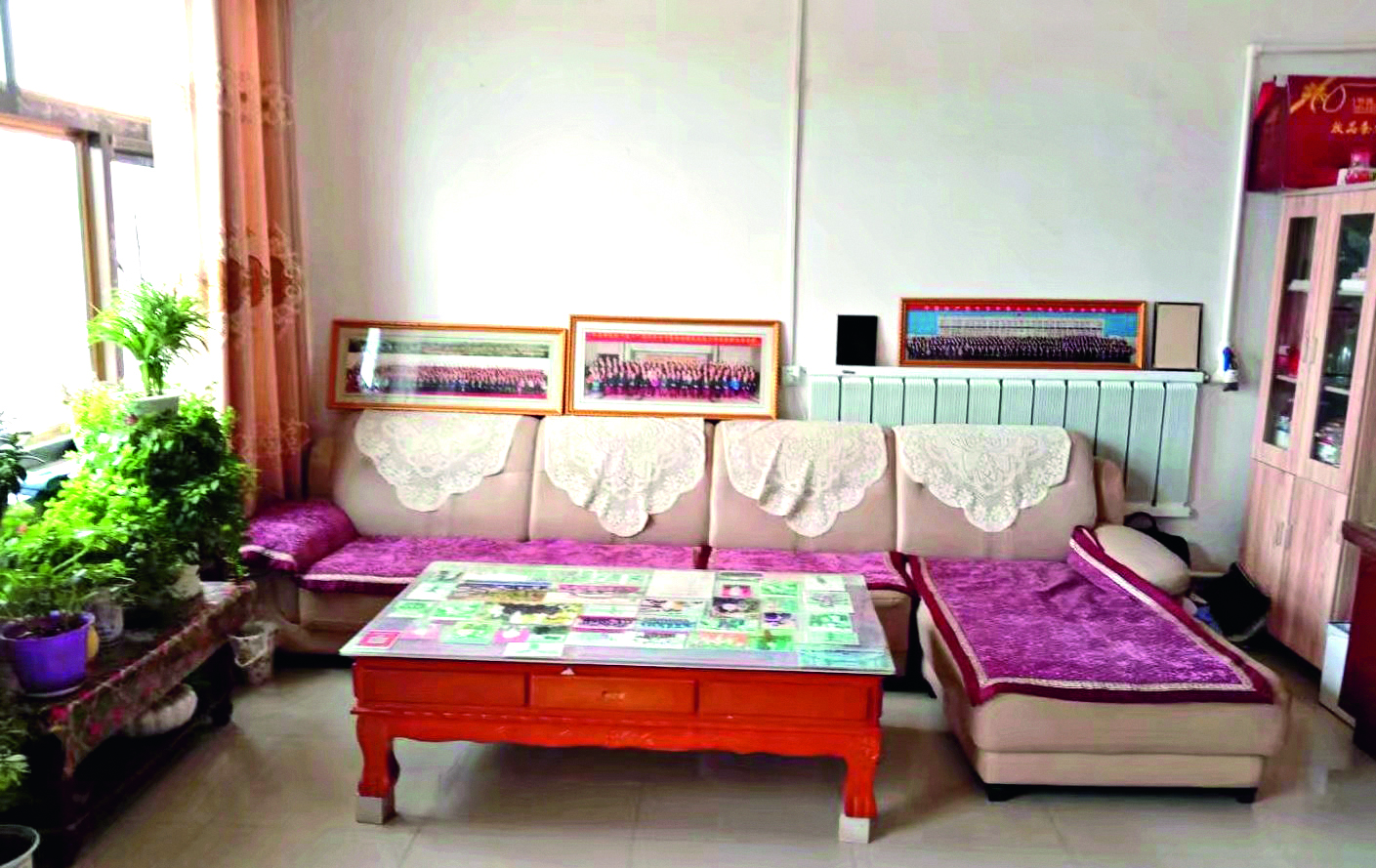Helping Fellow Villagers Attain Wealth

If you visit Dongsheng, a village in Dazhanchang, a town in Zhongning County, in Northwest China's Ningxia Hui Autonomous Region, and if you ask the villagers about Ji Xiuhua, you are likely to hear the following: "Ji treats everyone equally, and she lends a helping hand to whomever is in trouble," or "You can chat with Ji when you have problems to solve, and you will probably feel much better after chatting with her." Ji's story began more than 20 years ago…
From Picking to Growing
Ji, an ethnic Hui woman, married Ma Yiwen in 1999. They were both from Shagou (a village combined with other two villages to form today's Dongsheng Village). Ji was having difficulty earning a living after she got married. At that time, the six-member family relied on a few hectares of land for farming. Their annual income was less than 1,000 yuan (US $154). Their shabby house leaked when it rained. Many of the other villagers also lived in shabby houses.
Ji was young — just a bit older than 20 — when she got married. To earn money, she worked for some of the locals, who owned bigger agricultural businesses. She helped them remove weeds, fertilize the land, harvest vegetables and fruits, and even complete heavy labor, such as digging trees and building water channels. She worked very hard; however, her income in the beginning was a mere 8 yuan (US $1.23) per day.
Ma worried about his wife. He noticed her hands were blistered and callused. He tried to persuade her to take a rest, but Ji was unwilling to stop working. She kept thinking of ways to create wealth. She thought about renting land from other households to raise cattle and sheep, or to grow goji (a kind of nutritious Chinese berry). Whenever she had an idea, Ji would immediately discuss it with her husband, and they would wonder if they could give it a try.
For example, Ma had concerns about growing goji. "We know nothing about growing techniques. How can we do it well?" Ma asked his wife. "But how do we know we can't do it if we don't even try it? So many people from our village have gone to other villages to pick goji. It means growing goji will probably bring much more earnings than growing ordinary grain. We can grow goji on our farmland, and we can ask other villagers to come and pick our goji," Ji replied.
She eventually convinced Ma to try growing goji. They used 2 mu (0.13 hectare) of land, in front of their house, as an "experimental field." The young couple worked day and night, and their efforts eventually paid off. Ji expanded the goji growing area to 8 mu (0.53 hectare), and the couple began earning an annual income of 30,000 yuan (US $4,615). It was such an accomplishment for the small family, who used to worry if they could earn enough money to feed themselves.
Leading Villagers out of Poverty
By 2002, Ji's family had become the largest owner of a goji-growing business in the village. Ji and her husband had coped with many hardships to achieve their business and personal success. The couple had worked diligently to ensure the elderly members of their family enjoyed a happy life.
To grow goji well, Ji bought books and other materials to learn relevant skills. She attended training sessions held in her town, and she visited goji growers' farms to conduct field research. Both Ji and Ma grasped the goji-growing and -cutting skills. At the age of 22, Ji was recommended and passed the democratic election to become president of the women's federation of Shagou Village. "The government of our village trusts me. I will do my best!" Ji vowed. She wanted to help lift the villagers out of poverty.
Since Ji had accumulated experiences in growing goji, and as she had earned profits from such a business, she started to encourage villagers to grow goji. She taught others — for free — the techniques she had learned. From planting seedlings to cutting branches to using fertilization, Ji guided the villagers, step by step, in solving issues related to growing goji.
In 2007, the villages of Shagou, Pengjian and Majialiang combined to form Dongsheng Village. Ji became president of the women's federation of Dongsheng Village. She shouldered greater responsibilities, and she was busier in her daily work.

The land contracted by Ji's family was sandy. The quality of the soil declined, substantially, after 10 years of planting goji trees. Ji came up with a way to improve her agricultural business. "We irrigate land with water from the Yellow River. We can plant fruit trees, which can grow in high temperatures and dry weather," Ji said. That was the reason she began planting apple trees on the land where she had been growing goji.
Although Ji no longer grew goji, she explored other goji-related business opportunities. Since 2009, she has earned money by purchasing goji from other growers, and then selling the goji. Given their honesty and good reputation, Ji and Ma have cooperated smoothly with their fellow villagers. They earned 30,000 yuan (US $4,615) by selling goji during the first year.
In addition to selling goji and growing apple trees, Ji and Ma built sheds to raise cattle. Ji encouraged and helped villagers grow goji and fruit trees, and to develop breeding businesses to increase their incomes. Many of the villagers have since built and moved into beautiful houses.
The newly built, brick-and-tile house owned by Ji's family has a solar-powered water heater, and the ground in their courtyard has been paved with cement. Ji is happy the elderly members of her family are living in the brand-new house. She shows filial piety to the elderly, and she cares about her children. Neighbors praise Ji for her moral virtues. Ji believes it is her responsibility to look after the elderly; by doing so, she sets a good example for her children. If the children learn "filial piety is the priority of all moral virtues," they will care about their parents after their parents grow old.

Getting 'Rich' by Learning
While leading villagers out of poverty, Ji always thinks about ways to pass positive energy to others. In 2013, Ji decided to establish a bookroom for left-behind children, whose parents were earning a living away from their hometown, and for children from single-parent families. "I need only a simple room with a few desks and chairs. It's a place where children can study and read together," Ji said. So, she emptied a room in her house, and she used the money, which she received in 2015 for being named a model worker in Ningxia Hui Autonomous Region, to create a "bookroom of love."
Ji encountered a problem shortly after the bookroom was established. A lot of children liked to gather in the bookroom each weekend. It was difficult for the elderly members of Ji's family to rest when their home was crowded with children. Ji reported the situation to the Party branch committee of Dongsheng Village. In 2018, the "bookroom of love," which had operated at Ji's home for more than four years, was relocated to the "left-behind children's home" in the village's administration office.


Ji remains in charge of the bookroom's daily operations. She arranges for children to play games, study together and/or attend colorful events held at the children's home during weekends and holidays. "We have 30-plus left-behind children and children from single-parent families in our village. We hope they can feel love and care from society," Ji says. She seeks donations of clothing and books and stationery for children. She visits single-parent families to chat with children, and she arranges for children to learn moral virtues, so their spiritual world will be "rich."
"I am happy when I help others. It's my pleasure to see them happy too," Ji says. She vows to keep working hard in her efforts to help villagers attain wealth, care for the next generation and live a beautiful life.
Photos Supplied by the Interviewees
(Source: Marriage and Family/Women of China English Monthly January 2022 issue)
Please understand that womenofchina.cn,a non-profit, information-communication website, cannot reach every writer before using articles and images. For copyright issues, please contact us by emailing: website@womenofchina.cn. The articles published and opinions expressed on this website represent the opinions of writers and are not necessarily shared by womenofchina.cn.






.jpg)

 WeChat
WeChat Weibo
Weibo 京公网安备 11010102004314号
京公网安备 11010102004314号